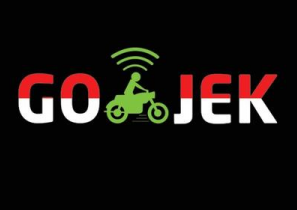
Indonesians are rejoicing as Go-Jek, the savior for their urban woes, has made it into Fortune magazine’s list of “Change The World” companies - the only firm from Southeast Asia to do so.
The green jacket motorcycle riders are a tremendous help in navigating the congested traffic of Jakarta and other big cities, ordering and delivering food, and even providing on-call massage and beauty services. Go-Jek has certainly changed city life, but is it for the better?
Ever since its launch in 2015, Go-Jek has steadily dominated the streets of Jakarta, along with other online ride hailing apps such as Uber and Grab. Their online ojek (motorcycle taxis) have gradually become the top transportation choice in the city.
Go-Jek certainly has achieved its mission to “create a social impact through technology”. The company claims that its partners, the riders, have seen an increase in their income thanks to access to passengers facilitated by the mobile app. Fortune notes Go-Jek’s impact on financial inclusion, as its more than 300,000 drivers now have access to bank accounts, microfinance loans, and other benefits such as health insurance and safety training.
Passengers too have a reliable alternative in the heavily congested traffic in Jakarta and 50 other cities, as buses and trains often run late and conventional taxis and motorcycle-taxis are very expensive with volatile prices.
On the surface, it certainly looks like Go-Jek is helping with Jakarta’s transportation problem. However, just because Go-Jek is a personal transportation solution does not mean that it is a solution for the city as well.
First is the fact that with the arrival of Go-Jek, the streets have not become less congested. If anything, Go-Jek has added more vehicles to the traffic volume as new drivers who do not have a motorcycle or car are encouraged and given access to microloans to afford one.
Second, by being a convenient mode of transportation, Go-Jek is more preferable than public transportation such as the TransJakarta buses and trains. This is by no means Go-Jek’s fault, as it is a business that offers a practical solution for its customers. However, this creates a big discrepancy between the government and the private sector’s approach to transportation.
The Indonesian Ministry of Transportation does not support the burgeoning call to list Go-Jek as public transportation due to its small capacity and high risk, as reported by Detik. The Jakarta City Transportation Council reports that by 2017, only 24 percent of traffic will be public transportation - quite far from the 2019 target of 40 percent.
Third, Go-Jek is creating another problem, mainly for pedestrians. Across the city, one can easily spot many “pangkalan ojek” or ojek stations where the drivers gather and park while resting or waiting for another order, usually adorned with banners mentioning whether the site is for online ojek or conventional ojek. The problem is that many of these sites are on sidewalks, violating the rights of pedestrians who also have to struggle against street vendors blocking their path.
Online ojek drivers and other motorcycle drivers often ride on the sidewalk to bypass the congested traffic. The Jakarta Transportation Agency recorded that 10,080 vehicles were caught encroaching on sidewalks in August when it commenced its Orderly Sidewalk Month. According to citizen monitoring app Qlue, 60 percent of reports in August 2017 related to online ojek was about illegal parking, and 10 percent about misuse of public facilities.
Fourth, by discouraging the shift to public transportation, Go-Jek is also worsening the air pollution problem in Jakarta. Greenpeace Indonesia’s observation for February and March 2017 at 19 points in Greater Jakarta revealed that the air pollution level far exceeds the maximum daily guidelines set by the World Health Organization (WHO). According to an International Energy Agency (IEA) report in 2016, Indonesia has the world’s third largest mortality rate related to air pollution at 165,000 deaths in 2012, after China and India.
There was plan by the Jakarta administration and city police to ban motorcycles from the main thoroughfares - Jl. Sudirman, Jl. Gatot Subroto and Jl. Rasuna Said - to reduce traffic. A ban on Jl. MH Thamrin since December 2014 has resulted in a decrease in vehicles by 22.4 percent, which in turn resulted in an increase of the average speed from 26.3 kilometers per hour to 30.8 km per hour.
However, due to protests from motorcyclists and advice from the Presidential Advisory Board, the plan was cancelled. City Council Speaker Prasetio Edi Marsudi said there was the possibility of implementing the ban after a better public transportation system was in place. Currently, the city is finishing the construction of a mass rapid transportation (MRT) and light rapid transit (LRT), the latter will connect Jakarta with its satellite cities.
All these problems are not the responsibility of Go-Jek alone, with passengers also sharing the blame. Private cars and motorcycles are an obstacle to healthy, non-congested transportation. Just because the passengers do not directly own these vehicles, it doesn’t mean that they are not contributing in exacerbating the congested traffic. The ever present and growing demand for online ojek and cars is a crucial part of the equation.
Go-Jek may serve as a tool for greater personal convenience, but it does not contribute to solving the larger problem of traffic congestion and pollution.







%20resized.png)
